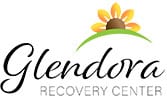In this comprehensive guide from Glendora Recovery Center, we’re going to take a closer look at the complex condition of bipolar disorder. Bipolar disorder impacts the lives of many people and their families. Our goal here is not just to inform but also to provide the understanding and compassion that individuals and families need when dealing with the condition.
Understanding Bipolar Disorder
Bipolar disorder is like a roller coaster for your emotions. Imagine riding the ups and downs of life, but these highs and lows are more extreme than what most people experience. People with bipolar disorder have episodes of intense emotions, from soaring highs known as manic or hypomanic episodes to the deep lows of depressive episodes. There are two different types of bipolar disorders that impact individuals suffering from it.
Types of Bipolar Disorder
Let’s uncover the two types of bipolar disorder so that you and your loved ones can recognize the signs.
Bipolar I Disorder: Think of bipolar I as a roller coaster with big loops and corkscrews. At times, individuals can have full-blown manic episodes that can last up to a week and even require hospitalization. These manic highs are often followed by depressive lows, making it a difficult and uncertain ride for everyone involved.
Bipolar II Disorder: Bipolar II has some gentler twists and turns. Instead of full-blown mania, patients experience hypomanic episodes, which are like milder versions. These are often paired with depressive episodes, creating a more subtle yet challenging experience while navigating life.
Understanding the Symptoms
Symptoms of bipolar disorder include highs and lows called manic and depressive episodes. Let’s develop a better understanding of the two here.
Manic Bipolar Episodes
Imagine being on a manic episode as riding a rocket to the moon. During this time, you or someone with bipolar disorder may:
- Feel “On Top of the World”: Feel incredibly happy, excited, or, sometimes, unusually irritable.
- Have Boundless Energy: Patients describe having a “battery” that never runs out.
- Forget About Sleep: Sleep becomes optional, and people who suffer from bipolar disorder can go for days with little or none.
- Embrace Impulsivity: The roller coaster takes unexpected turns with impulsive decisions like shopping sprees, risky behavior, or sudden life changes.
- Battle Racing Thoughts: Patients with bipolar disorder report unwavering mind races that make it nearly impossible to focus on any one thing.
Depressive Bipolar Episodes
Now, picture someone descending from that high and landing in a depressive episode. This is like trudging through a deep valley where one can experience any of the following symptoms:
- Feel Overwhelmed by Sadness: Profound feelings of sadness, hopelessness, and despair can consume you.
- Lose Interest in Life: Activities that once brought joy lose their luster.
- Deal with Changes in Appetite and Sleep: Some people eat too much; others lose their appetite. Sleep patterns become unpredictable.
- Confront Dark Thoughts: For some, thoughts of self-harm or suicide can be a haunting part of this low point.
What Causes Bipolar Disorder?
While scientists haven’t pinpointed the exact cause of bipolar disorder, they believe it results from a combination of factors, including the following:
- Genetics: Sometimes, it’s like a family recipe that gets passed down. If you have close relatives with bipolar disorder, your risk may be higher.
- Brain Chemistry: Think of it as your brain’s orchestra – sometimes, the instruments are out of tune. Imbalances in brain chemicals, like neurotransmitters, can play a role.
- Life Events: Stressful life events, traumas, or substance use can be like triggers that set the roller coaster in motion, especially if you’re genetically predisposed.
Getting a Bipolar Diagnosis
Diagnosing bipolar disorder often involves:
- Talking It Out: A compassionate mental health professional will ask patients questions about their experiences and feelings.
- Ruling Out Other Possibilities: A professional psychiatrist will make sure it’s not something else masquerading as bipolar disorder.
- Keeping a Mood Diary: Sometimes, patients will be asked to keep track of their moods to help find patterns between their triggers and behaviors..
How to Navigate the Ride
Finally, managing bipolar disorder is like learning to control the roller coaster. It can be challenging, but there are strategies to make daily life easier:
- Medications: Mood stabilizers, antipsychotics, and antidepressants can help level out your emotions.
- Therapy: Psychotherapy, such as cognitive-behavioral therapy (CBT), can provide tools to manage difficult situations and triggers.
- Lifestyle Adjustments: Creating a stable daily routine, managing stress, getting regular exercise, and steering clear of substances that can throw you off course should all be part of your routine.
Living With Bipolar and Addiction
Living with bipolar disorder is like navigating an ever-changing terrain. It can become even more challenging when drug addiction is involved. Patients with bipolar disorder tend to engage in risky behaviors if their symptoms are not being managed.
If you or someone you know is on this emotional roller coaster and dealing with drug abuse, reach out for support. You’re not expected to go through this journey alone. Mental health professionals, support groups, and understanding friends and family are like the safety net that makes the journey towards recovery more manageable.
Embracing Hope and Resilience at Glendora Recovery Center
At Glendora Recovery Center, we offer Intensive Outpatient Programs (IOP) as well as a Partial Hospitalization Program (PHP) for adolescents and adults dealing with bipolar disorder and drug addiction. We understand the risks associated with bipolar and drug addiction and take a well-rounded approach toward recovery. It is never safe to go through drug withdrawal without the care and attention of medical professionals. Our facilities provide people with a serene place of recovery under the guidance and care of professional nurses and doctors.
We offer group and family therapy, cognitive and dialectical behavior therapy, as well as alternative modalities like art and yoga therapy to help you or a loved one on the road to recovery. When you are ready, our compassionate nurses and doctors will be here to help. Our facilities are located in Glendora, CA. Contact Glendora Recovery Center today. Let’s get your life back in order together.






